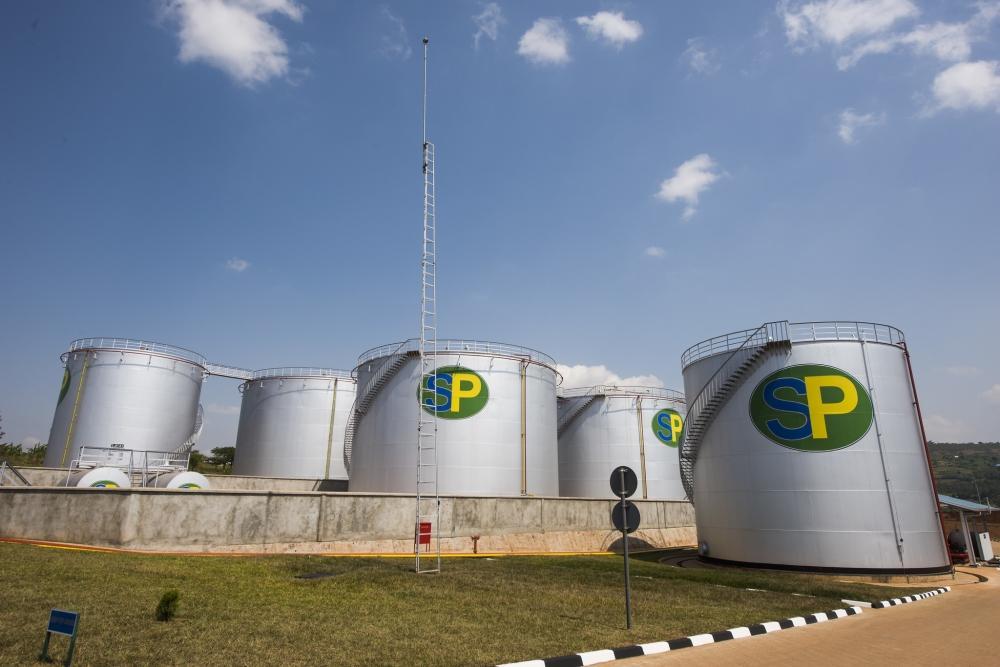Africa-Press – Rwanda. Rwanda is set to expand its national petroleum storage capacity from 66.4 million litres to 334 million litres following a revised fuel levy, in a bid to strengthen the country’s fuel security.
The development is contained in a new bill introducing a 15 percent fuel levy to finance the construction of advanced storage facilities across the country.
The bill replaces the current fixed charge of Rwf115 per litre of fuel with a percentage-based levy calculated on the cost, insurance, and freight (CIF) value of petrol and diesel imports.
Under the plans, the government is targeting at least three months of fuel and petroleum reserves, up from the current one-month capacity, an explanatory note of the bill shared with The New Times on Tuesday, April 29, indicates.
The current government-owned reserves hold approximately 66.4 million litres, covering only one month of national consumption.
“The target is to increase this capacity to 334 million litres, which would ensure a three-month buffer in case of fuel supply disruptions,” the note reads in part.
To finance this expansion, the levy on petrol and gas oil is expected to increase from Rwf32.73 to Rwf50 per litre.
“This levy accounted for 15 percent of the price of petrol in 2016, but fuel prices have since increased, while the levy remained unchanged. The proposed adjustment ensures the levy reflects current market realities,” explained Godfrey Kabera, the Minister of State for National Treasury at the Ministry of Finance and Economic Planning.
Kabera argued that additional revenue from the levy will support road infrastructure improvements, reduce traffic congestion, and ensure sustainable funding for road maintenance.
It is expected that the adjustment would generate an additional Rwf5.2 billion annually, according to the bill’s explanatory note.
The development comes at a time when the country’s fuel import bill has seen substantial growth, a move that officials attribute to Rwanda’s limited petroleum storage.
Like all energy importers, Rwanda faces long-run risks associated with the supply of fossil fuels, high oil prices on international and domestic markets, political instability in oil-producing and exporting countries, piracy along the major maritime routes, as well as instability in transit countries.
The country’s petroleum transport infrastructure, primarily composed of road transport from Kenya and Tanzania, which are the main transit countries of Rwanda’s fuel imports, is expensive and often riddled with weak infrastructure systems.
However, officials told The New Times in an earlier interview that there are plans underway to extend the Nairobi—Eldoret pipeline to Kampala and Kigali, and new lines in western Kenya have opened up the development of other projects, such as the Kisumu Oil Jetty that could serve Rwanda better.
A proposed railway system to Kigali from Tanzania is also being planned, according to the Ministry of Trade and Industry.
The government’s strategy includes incentivizing private investment by raising the return for storage facility builders from Rwf8 per liter to between Rwf12 and Rwf14, to further lure private-sector participation.
Fuel storage infrastructure comprises both government and privately owned facilities, including OilCom’s site in Jabana, SP’s storage in Rusororo, government facilities in Gatsata, Rwabuye, and Bigogwe, and ERP’s facility in Kabuye.
How will it be done?
The levy will continue to be collected at customs posts and deposited into a designated sub-account within the Public Treasury’s single account, according to the note.
“The revised law also reformulates Articles 2 and 3 of the 2015 legislation to clarify that the levy collected is specifically allocated for strategic petroleum reserves,” the note reads in part.
Despite the ambitious targets, members of parliament raised concerns, warning that the move could, among others, drive up the cost of goods and services for consumers.
MP Jean Claude Ntezimana cautioned that raising the levy could undermine Rwanda’s competitive fuel pricing, which has traditionally been kept relatively low despite the country’s landlocked status.
He warned that the increase could have a ripple effect on transport costs, ultimately burdening consumers.
“If this levy is increased while prices are already high, won’t that place an even greater financial strain on citizens?” he questioned.
Another MP, Beth Murora, echoed similar concerns, highlighting that higher fuel levies could make locally produced goods less competitive compared to imported alternatives.
“There are already products sourced from abroad that arrive at lower prices than those produced domestically. How do we ensure that this tax does not further disadvantage locally made goods?” she asked.
Kabera quickly reassured that the introduced levy is projected to raise pump prices by Rwf18 per litre.
According to him, this impact is minimal and will likely be offset by the current decline in global fuel prices.
For Aline Mutabazi, Economics lecturer at the University of Rwanda, the expansion of fuel storage infrastructure is timely due to the country’s limited existing capacity and the need for energy security.
She argued that the new storage facilities will enable the country to manage short-term supply shocks and reduce dependency on immediate fuel imports.
Kabera maintained that the development is part of a series of tax reforms introduced by the government to ensure the continuity of critical services in the event of supply interruptions.
The landlocked status of Rwanda makes it necessary to institute ways to increase petroleum supply assurance.
The key challenges faced, according to the Rwanda Association of Petroleum Products Importers (ASSIMPER), include global price volatility, unreliable product supplies, high transport costs due to insufficient transport, and insufficient storage capacity.
This, the association reiterated, negatively impacts imports, re-exports, distribution, and maintenance of strategic reserves of petroleum products.
For More News And Analysis About Rwanda Follow Africa-Press






